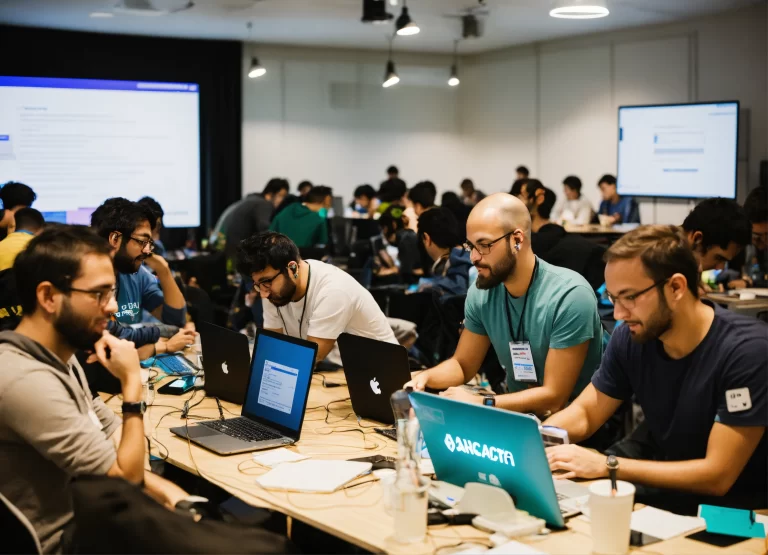Innovate or Stagnate

Future proofing for NGOs
In today’s rapidly evolving world, the ability to innovate is no longer optional for non-governmental organizations (NGOs); it’s essential for survival. “Innovate or Stagnate: Future proofing for NGOs” explores strategies and blueprints that empower NGOs to embrace innovation and remain relevant in an ever-changing landscape.
- Embracing a Culture of Innovation: Innovation begins with mindset. NGOs must foster a culture that values creativity, experimentation, and risk-taking. By encouraging staff and volunteers to think outside the box and explore new ideas, organizations can create an environment conducive to innovation.
- Identifying Emerging Trends and Opportunities: Staying ahead of the curve requires a keen understanding of emerging trends and opportunities. NGOs should conduct regular scans of the external environment, monitoring social, technological, economic, and political developments. By identifying trends early, organizations can position themselves to capitalize on emerging opportunities.
- Creating Spaces for Collaboration and Co-creation: Innovation thrives in collaborative environments. NGOs should create spaces for staff, volunteers, beneficiaries, and other stakeholders to collaborate and co-create solutions to complex challenges. By harnessing collective intelligence and diverse perspectives, organizations can generate innovative ideas that drive meaningful change.
- Leveraging Technology and Digital Transformation: Technology is a powerful enabler of innovation. NGOs should leverage digital tools, data analytics, and emerging technologies to streamline processes, enhance service delivery, and amplify their impact. By embracing digital transformation, organizations can unlock new opportunities for innovation and efficiency.
- Investing in Research and Development: Innovation requires investment. NGOs should allocate resources to research and development initiatives that explore new approaches, methodologies, and technologies. By investing in R&D, organizations can stay at the forefront of innovation and continuously improve their programs and services.
- Encouraging Experimentation and Iteration: Not every idea will succeed, and that’s okay. NGOs should create a safe space for experimentation and iteration, where failure is viewed as a learning opportunity. By encouraging staff and volunteers to test new ideas, iterate based on feedback, and pivot when necessary, organizations can foster a culture of continuous improvement and innovation.
- Building Partnerships with Innovators and Entrepreneurs: Collaboration with external innovators and entrepreneurs can inject fresh perspectives and ideas into NGO operations. Organizations should actively seek partnerships with startups, social enterprises, and innovators from diverse sectors. By collaborating with external partners, NGOs can access new resources, expertise, and networks that fuel innovation.
- Empowering Staff and Volunteers as Change Agents: Innovation is everyone’s responsibility. NGOs should empower staff and volunteers as change agents, providing them with the training, tools, and support they need to drive innovation within their roles. By harnessing the collective creativity and passion of their team members, organizations can spark innovation at every level.
- Conduct a Risk Assessment: The first step towards future proofing for NGO your community is to identify potential risks and challenges. This could include natural disasters, economic downturns, or social unrest. By understanding these risks, you can develop strategies to mitigate them and ensure continuity in the event of a crisis.
- Prioritize Equity: Ensuring that everyone has access to essential services like healthcare, education, and affordable housing is critical for building a sustainable community. By prioritizing equity and inclusivity in your community, you can help ensure that everyone has a fair shot at success.
Conclusion: Innovate or stagnate: the choice is clear for NGOs navigating an increasingly complex and uncertain landscape. By embracing a culture of innovation, identifying emerging trends, creating spaces for collaboration, leveraging technology, investing in R&D, encouraging experimentation, building partnerships, and empowering staff and volunteers as change agents, future proofing for NGOs their operations and continue to make a meaningful impact in the world.
International Trainer’s Society for Management and Business Acumen-ITSMBA proudly introduces the two-year training Post Graduate Professional Certification program for Sustainable Social Enterprise and Leadership tailored for aspiring change-makers.






